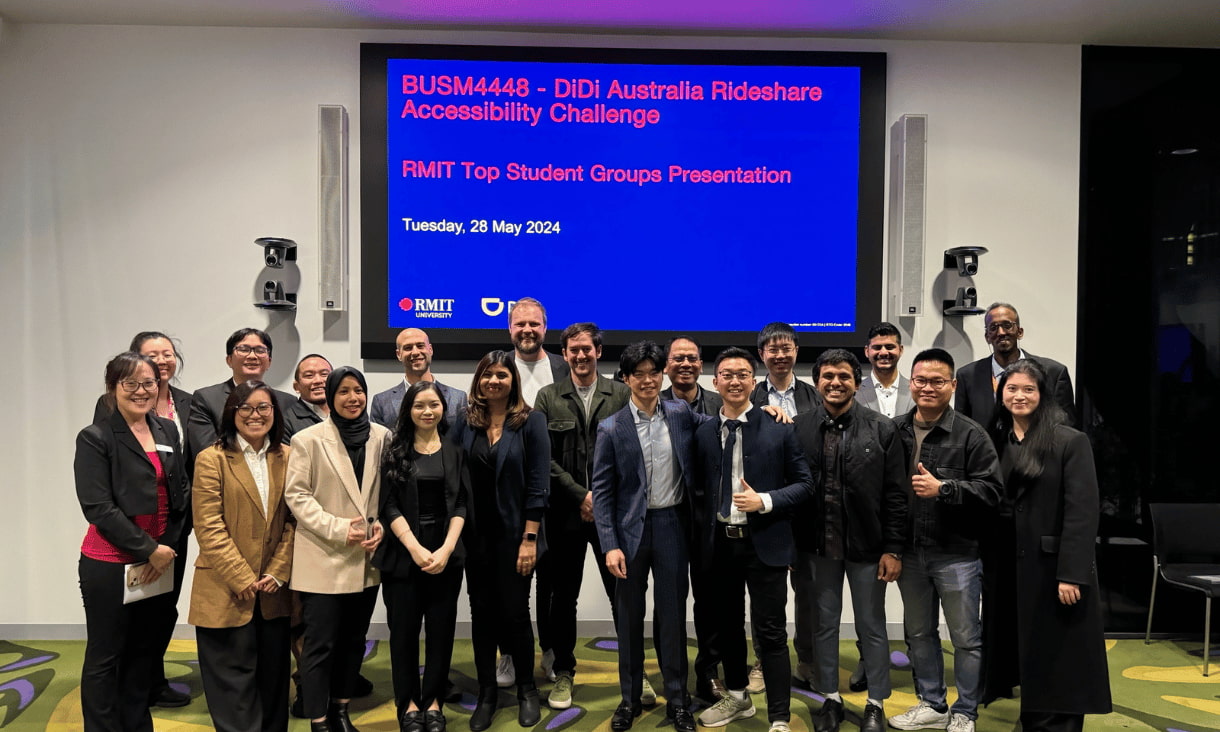The project was among four top student concepts presented by RMIT business student teams, from RMIT’s Master of Commerce, Master of International Business and Executive Master of Business Administration programs.
They undertook the applied learning project through a partnership between the university’s College of Business and Law and the rideshare platform.
The projects addressed sector-wide accessibility challenges faced by people who use rideshare, such as accommodating for customers with assistance animal requirements, participation of women in the workforce and the accessibility of the app itself.
DiDi provided feedback on each student project and selected the top concept, which now has the chance to be developed further.
RMIT Deputy Dean of Learning and Teaching at the Graduate School of Business and Law, Associate Professor Ling Mei Cong said the projects demonstrated how industry is integrated into an applied learning approach across multiple programs, with a focus on social impact.
“Having students work on real-life, wicked problems, such as these being faced by DiDi and the rideshare industry, and potentially seeing their ideas come to life to create meaningful change, is really motivating for the students,” Associate Professor Cong said.
“Presenting directly to industry representatives for feedback also gives them many practical skills they will apply throughout their careers, creating work-ready graduates and employees who can make a real difference.”
DiDi Head of External Affairs, Dan Jordan, said partnering with RMIT to explore improvements to equal access for riders and drivers ultimately aligns with the rideshare platform’s values and can shape better services in the future.
“The rideshare industry is unique and fast-paced, presenting with it a variety of challenges. Having shared some of these challenges through this partnership, we have found RMIT’s students have and ability to think outside the box and uncover new ways of doing things,” Mr Jordan said.
“So, it’s really refreshing to hear from them and think about how we might approach these challenges differently. It presents some exciting opportunities for us to consider.”





